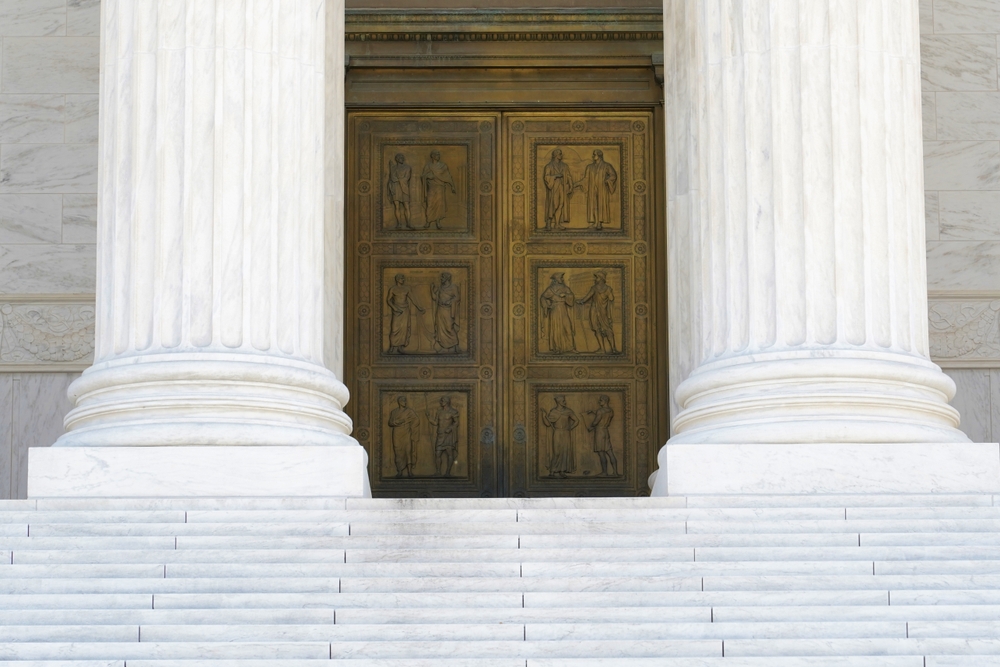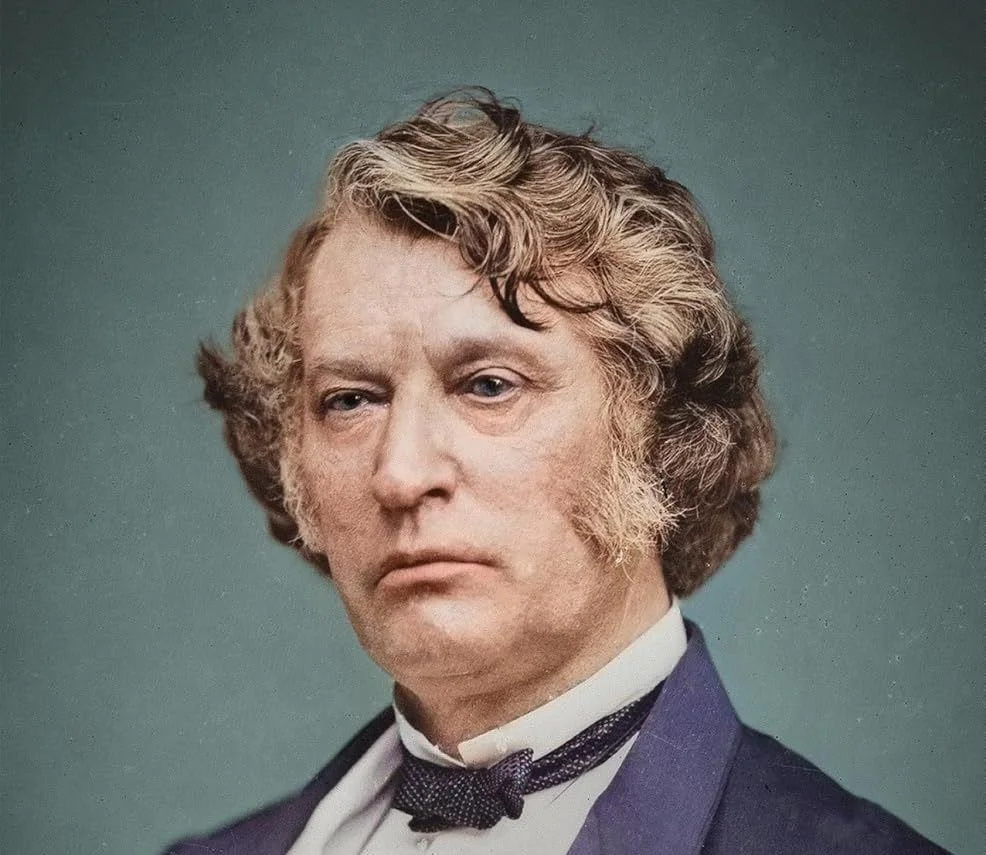
Free Speech and Common Sense Need New Champions
The issue comes down to one of courage and will.
Editor's Note: Mark Bauerlein responds to Hadley Arkes' lead essay "Free Speech and the American University: A Proposal."
Near the beginning of his proposal, Hadley Arkes states that the proper regulation of speech on campus isn’t complicated. We have a model at hand, if we look backwards. The answer is “the recall and restoration of those doctrines, grounded in the precepts of common sense and natural law, that used to prevail in our courts and public life.” Those doctrines, he adds, aren’t obscure or academic. They form a “moral framework . . . that we, as a people, had no trouble understanding.” It’s an obvious solution, and practical, too, no extra bureaucracy or procedures needed. If you are more than 50 years old, you remember your own time as an undergraduate when, apart from those few years of anti-War protests, rules, honor codes, and common sense expectations kept things under control. If it were 1977 and students surrounded and harangued a professor the way Yale kids in 2015 did to Professor Christakis, nobody would doubt whether they and their f-words hadn’t crossed a line and deserved punishment.
But to campus officials in charge of those very speech policies and assumptions in need of revision, and to professors who, through “doctrines of cleverness and novelty,” have displaced common sense and ordinary language, the call to go back means nothing. Worse, it amounts to turning back the clock, a crime against Progress. Political correctness demands that we look ahead, not behind. The course of history is an advancement of tolerance, it says, which only a hidebound outlook seeks to reverse. Progressives shore up that judgment with an intellectual objection to proposals such as Arkes’: it begs the question of what constitutes common sense. He repeats the term later — “the ‘common sense’ understanding of the moral boundaries . . . common sense teaching . . . the common sense of ordinary people” — but none of those additions, in their eyes, gets around the problem of clarification.
Judith Butler articulated the challenge neatly in a New York Times op-ed in 1999 (“A ‘Bad Writer’ Bites Back,” 20 Mar). Having been named that year’s winner of the Bad Writing contest, which gave the mock honor to humanities theorists who wrote sentences thick with jargon, pretentiously declamatory, and far from common sense, Butler took to the Times to defend her clotted prose by disputing the yardstick of common sense itself. “Many quite nefarious ideologies pass for common sense,” she stated, citing slavery as, at one time, a common-sense belief. Not infrequently, she continued, common sense is but a rationalization of unjust social conditions, a way of discouraging alternative thinking. If you call a rule or custom a matter of common sense, the argument goes, you free it from skepticism and adjustment. Reform is stalled. The term masks modes of power and dominance, casts them as natural and renders them “invisible.” Common sense appeals aren’t just complacent — they’re complicit. A figure who invokes it is guilty of upholding a status quo that ought to be interrogated.
It’s a daunting argument, certainly so within academia. I’ve seen it wielded in seminars and conferences, where the last thing an academic wants to have happen is to be labelled an enemy of forward movement. To challenge, to problematize, to deconstruct, to queer . . . radical skepticism of the normative and normal, the natural and natural law . . . mistrust of traditional social codes . . . analysis of commonplace words that (putatively) uncovers their “sedimented” values . . . that’s the going etiquette. Gender theory’s first target was heteronormativity. What is a woman? This breakdown of the common, the ordinary, and the normal is, paradoxically, a professional norm. One learns it early in graduate school. It sinks into an aspiring academic’s soul and becomes a reflex. So, when Professor Arkes calls for a common sense recognition that a “massing of a crowd on the campus” is not a legitimate exercise of First Amendment rights, I can hear campus officials and radical professors asking the problematizing queries: At what point does a gathering become a “massing”? Why aren’t such gatherings a proper expression of social justice? What is an administrative rule compared to righteous causes such as children in Gaza? What is common sense if it stifles the moral scruples of the young?
Professor Arkes acknowledges the “substantive argument” point — that is, that the people massing on the quad could express their opinion in no other way than by massing on the quad. Then he dispenses with it: we can convene a forum in which the leaders may voice their position and others may respond according to the rules of assembly at the college (a moderator, an approved location, no classes cancelled, etc.). That is, of course, a sensible decision, and if protesters object, well, they can do their massing somewhere else. Professors and intellectuals may deploy their “cleverness and novelty” all they want to undermine the policy of orderly gatherings, but they’re the only ones who buy the objections. Common sense wins, and when the eggheads ask, “Whose common sense?” the rest of us answer, “Everyone’s.”
The issue comes down to one of courage and will. Can college administrators “summon the nerve to see what is before them” and enforce common sense rules of behavior? Courage, however, isn’t enough, nor are codes of conduct. To take Arkes’ example, is it acceptable for campus dwellers to celebrate October 7th as long as they do it in a lawful assembly, without disrupting classes and study time? If so, then we have procedures but no decent moral framework. Say anything you want, just do so in a civil fashion, and all is well. This is, in fact, the favored option of college presidents today, who pronounce their disagreement with the radicals but pledge to uphold the rights of free speech. They offer it as a principled stand, a core tenet of higher education. It doesn’t much impress people off-campus, though, as the testimony of the Ivy League presidents two years ago amply demonstrated.
I think this is more than the weakness of the managerial personality at work. There’s an intellectual ingredient as well, namely, the ideology of critique I noted above, the commitment to nonstop interrogation of traditional values. College leaders don’t cite Foucault or Nietzsche, but the disposition away from old ideals of decency, propriety, normalcy, and custom they have internalized. It helped them climb the administrative ladder. But it's an institutional posture, not an intellectual one. The dogma goes back many decades and has become synonymous with academic thinking. One must test all assumptions, examine one’s beliefs, listen to dissenters . . . The fact that it is only traditional beliefs that undergo critique, not postmodern and radical ones, doesn’t curb its force. When Justice Jackson did not provide in her Senate testimony an answer to the question, “What is a woman?” she baffled ordinary Americans, but academics were entirely comfortable with her diffidence. To rely on the “precepts of common sense,” which Professor Arkes affirms, would have put her at risk.
We have two tasks before us, then, if we wish to reform the speech policies of higher education. One, we must embolden college leaders to enforce the rules; and two, we must persuade them of the dead end of critique. In the 1970s, a wave of critical theory swept over the humanities, raising radical interpretation to the highest value. The tendency spread to other fields in the 80s and 90s and took on a political mission, giving identity politics a deep philosophical warrant (“As Adorno says . . .”). We need now a strong presentation of the damage it has done, the evidence of which is everywhere, from an inability to define the sexes to odious concepts such as “white fragility” to the dithering performance of college leaders in settings calling for candid, forthright exposition and leadership. Administrators are too often intimidated by the apostles of critical theory, however indirectly. The gadflies poking at traditional ways of thinking and speaking do play a part in a healthy society, but only when they stay at the margins. When critique becomes dominant, paralysis begins, judgment slackens, and the public square opens to troublemakers and discontents. The public has had enough; approval ratings are down, and common sense needs new champions.
Mark Bauerlein is an editor at First Things and Professor of English Emeritus at Emory University.
Constitutionalism

Amicus Brief: Hon. William P. Barr and Hon. Michael B. Mukasey in Support of Petitioners
Former AGs Barr and Mukasey Cite Civitas in a SCOTUS Brief

Rational Judicial Review: Constitutions as Power-sharing Agreements, Secession, and the Problem of Dred Scott
Judicial review and originalism serve as valuable commitment mechanisms to enforce future compliance with a political bargain.

Supreme Court showdown exposes shaky case against birthright citizenship
Supreme Court will hear challenges to Trump's order ending birthright citizenship, testing the 14th Amendment's guarantee for babies born in America.

Slavery and the Republic
As America begins to celebrate its semiquincentennial, much ink has been spilled questioning whether that event is worth commemorating at all. Joseph Ellis’s The Great Contradiction could not be timelier.

Two Hails For The Chief’s NDA
Instead of trying to futilely plug the dam to stop leaks, the Court should release a safety valve.


.avif)










.avif)



